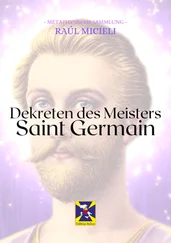Sylvie Germain - Magnus
Здесь есть возможность читать онлайн «Sylvie Germain - Magnus» весь текст электронной книги совершенно бесплатно (целиком полную версию без сокращений). В некоторых случаях можно слушать аудио, скачать через торрент в формате fb2 и присутствует краткое содержание. Год выпуска: 2008, Издательство: Dedalus Ltd, Жанр: Современная проза, на английском языке. Описание произведения, (предисловие) а так же отзывы посетителей доступны на портале библиотеки ЛибКат.
- Название:Magnus
- Автор:
- Издательство:Dedalus Ltd
- Жанр:
- Год:2008
- ISBN:нет данных
- Рейтинг книги:3 / 5. Голосов: 1
-
Избранное:Добавить в избранное
- Отзывы:
-
Ваша оценка:
- 60
- 1
- 2
- 3
- 4
- 5
Magnus: краткое содержание, описание и аннотация
Предлагаем к чтению аннотацию, описание, краткое содержание или предисловие (зависит от того, что написал сам автор книги «Magnus»). Если вы не нашли необходимую информацию о книге — напишите в комментариях, мы постараемся отыскать её.
Magnus — читать онлайн бесплатно полную книгу (весь текст) целиком
Ниже представлен текст книги, разбитый по страницам. Система сохранения места последней прочитанной страницы, позволяет с удобством читать онлайн бесплатно книгу «Magnus», без необходимости каждый раз заново искать на чём Вы остановились. Поставьте закладку, и сможете в любой момент перейти на страницу, на которой закончили чтение.
Интервал:
Закладка:
He suggests dining at a restaurant nearby, but she would rather go to the Heilgenstadt district on the other side of town, not having been there for a long time. It is quite a long journey, and by the time they get there darkness has fallen, lanterns have been lit in the courtyard of the tavern they go to, and already the long wooden tables set up under the chestnut trees are nearly all occupied. Peggy looks round and spots a small table on the far side of the courtyard that some people are just about to leave. She points out the free table with her gold-ringed index finger zigzagged with translucid red.
The lanterns cast a slightly acid light that bleaches the shadows beneath the boughs in a pale ochre haze, glistens on the faces of the diners and makes the white wine in the glasses and carafes sparkle with shimmering hues of citron, honey, or pale gold.
The wine trills in the glasses, strikes a fresh note in the mouth, and soon sings beautifully in a few joyous throats.
The diners at the table next to Magnus and Peggy are on fine musical form, interrupting their chatter punctuated with noisy laughter to break into song, moving on from ballads to lieder, and returning to some love songs. One of the singers has a deep strong voice, albeit a little husky with age. A bass baritone voice to which everyone listens with pleasure.
‘What’s wrong? Don’t you feel well?’ asks Peggy, suddenly distracted from listening. Magnus is sitting rigid on the bench opposite her, drained of colour, with staring eyes. He recovers himself and says, ‘It’s nothing … the wine, the heat … a wave of tiredness.’ He makes an effort to smile and adds, ‘Ssh, listen to the singing.’
He can no longer fight the need to look at the man whose voice dominates, eclipses everyone else’s. He slowly turns towards the next table, seeking out the baritone. He sees a man of medium build, aged about seventy. A narrow band of white hair emphasizes his suntanned scalp. He can only see him in three-quarters profile. He studies his nose: a short very straight nose. But a nose can be operated on, fixed, thinks Magnus. The man is wearing tortoiseshell-rimmed glasses with dark rectangular frames. Magnus cannot make out his eyes, or the shape of his mouth, which is half-concealed by a moustache that runs into a closely trimmed beard, forming a white oval under his nose down to his chin. So he tries to see his hands. Age has left its mark on them, the veins are prominent beneath the speckled skin, but the observer’s gaze is struck by their appearance: these hands are beefy with impeccably manicured fingernails.
Magnus rises and walks over to one of the waiters. He tells him he would like to surprise his wife, who is particularly fond of the Schubert song ‘ Geist der Liebe ’. Could he ask that man who has such a fine voice whether he knows the song, and would he agree to sing it?
‘Ah, that Walter!’ exclaims the waiter, laughing. ‘He can still sing amazingly well, can’t he? And nearly eighty he is! And it’s not just his voice that’s well preserved, so is his taste for pretty women!’
‘You know him? What’s his name?’
‘Walter Döhrlich. He’s a regular customer. Often comes here. Lives in the neighbourhood. Well, I’ll go and convey your request to him. He’ll be delighted to sing for a beautiful stranger.’
Magnus returns to Peggy, positioning himself so that he gets a better view of the man by the name of Walter Döhrlich. The waiter approaches him and whispers something in his ear. The man smiles, looks round, surely seeking out the charming wife to whom ‘ Geist der Liebe ’ is dedicated. He gets to his feet, the better to project his voice, and starts to sing.
‘ Der Abend schleiert Flur und Hain/In traulich holde Dämmerung …’1 The man stands very upright in the pale light under the chestnut tree, his mouth opens wide, a dark chasm of mellifluousness. With the stench of death. ‘ Die Baüme lispeln Abendsang/Der Wiese Gras umgaukelt lind …’2 He sketches in the air the slow gestures of a seed-sower. A sower of bloodletting, terror, ashes. Magnus can see again the purple velvet drawing-room curtains in the house by the heath. And in the folds of the curtains appears the spectre of a little boy. ‘ Der Geist der Liebe wirkt and strebt …’3 The mouth of darkness ringed with an oval of white modulates the incantation to ‘the spirit of love’. Every precisely articulated word falls on Magnus like a drop of acid, he clenches his jaws and fists to suppress a fierce desire to cry out. Having often heard them in the past he knows every one of these words, this tune, so well, — ‘ Geist der Liebe ’, Thea’s favourite lied.
The curtain grows heavier, its folds deepen into long black and purple trenches with figures in their thousands trembling at the bottom of them. Peggy listens, enraptured, to this improvised concert under the chestnut trees in the tavern garden. The evening of her unexpected engagement is a joy of utter charm and delight, a feast for all the senses. She raises her glass and unobtrusively clinks it against Magnus’s before bringing it to her lips. She smiles as she sets it down again, her left cheek dimpling, her lime-green eyes sparkling. Peggy: first body he desired, first mouth he kissed, a body lost and found, embraced at last, and penetrated, caressed, explored, and still desired. Peggy, song of the flesh, love incarnate.
‘ Ein Minneblick der Trauten hellt/Mit Himmelsglanz die Erdenwelt .’4 The mouth of darkness closes slowly, almost regretfully, in a sensual sigh. The elderly gentleman with the white goatee beard and coronet of white hair has certainly sung with talent, with a suave passion whose warmth delicately diffuses through the garden, enchanting all the customers in the tavern, and a spate of applause punctuated with a few enthusiastic bravos hails his performance.
This end-of-concert commotion suddenly brings Magnus back to reality — the curtain disappears, his memories recede, his emotion subsides, and everything inside him falls silent. He was surely mistaken, his misapprehension giving rise to a delusion. Despite a few admittedly very disturbing similarities, this dapper seventy-year-old amateur lieder-singer is not, could not possibly be, former SS Obersturmführer Clemens Dunkeltal. The fugitive Dunkeltal died ignominiously in the port of Veracruz more than thirty years ago. Magnus reassures himself, dispels his suspicions, and finally relaxes.
‘It was for you he sang that song,’ he tells Peggy, and explains how he approached the waiter. But he does not admit the real reason for his initiative, and when a radiant Peggy laughs at this supposed subterfuge, he feels a bit of a heel.
The success scored by the elderly bass baritone rekindles the liveliness at the table where he is sitting: the hero, in his element, is toasted by all around it. Suddenly Magnus, who is no longer paying him the febrile attention he directed at him all the time he was singing, notices a man who has come up behind Walter Döhrlich. A clean-shaven man of about forty with brown hair and a crew cut. He has placed one hand on the singer’s shoulder, a gesture conveying as much pride as affection. The pride and affection a son feels for his father. Which, judging by what they say to each other, is what they are. The resemblance between this man, named Klaus, and Walter Döhrlich, is not obvious; however, the resemblance between him and Clemens Dunkeltal at the same age is glaring. Apart from the hair — Clemens Dunkeltal’s was lighter and rather fine whereas this man’s is thick and brown — everything else tallies: the same stockiness, even the same bearing, the same aquiline nose and thin-lipped mouth, the same oblique line between arched eyebrows, the same square chin. Though old Dunkeltal, now balding, with his nose fixed and his chin cleverly rounded with a cleverly-trimmed goatee beard, has made zealous attempts to disguise himself, the job is only half done: he has neglected to change the inflections of his voice when he sings and his German accent when he speaks, and he has not noticed that his son has become the mirror image of him at a younger age. So here he is, betrayed by what he is most proud of, his beguiling voice and his beloved bastard son, Klautschke of the Berlin Zoo.
Читать дальшеИнтервал:
Закладка:
Похожие книги на «Magnus»
Представляем Вашему вниманию похожие книги на «Magnus» списком для выбора. Мы отобрали схожую по названию и смыслу литературу в надежде предоставить читателям больше вариантов отыскать новые, интересные, ещё непрочитанные произведения.
Обсуждение, отзывы о книге «Magnus» и просто собственные мнения читателей. Оставьте ваши комментарии, напишите, что Вы думаете о произведении, его смысле или главных героях. Укажите что конкретно понравилось, а что нет, и почему Вы так считаете.












